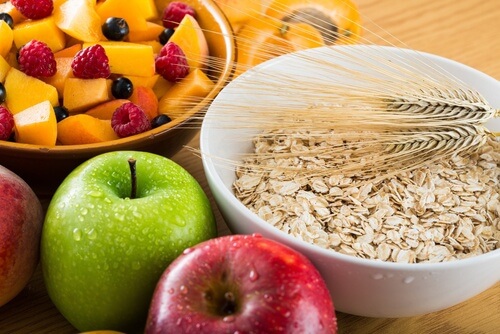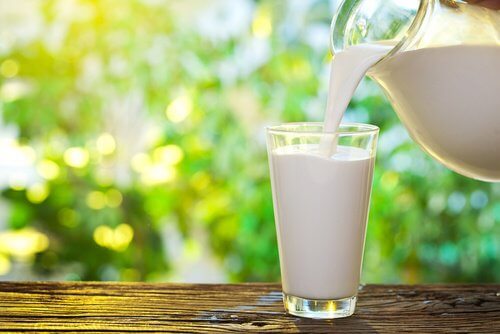For a long time, experts have advised patients to eat less and exercise to lose weight. Now these tips are too simple to deal with complex problems like overweight or obesity.
Hormones and genes play an important role in weight problems. You can't change your innate genes, but the hormones that cause weight gain can be controlled with food.
6 effective ways to control your weight gain hormones
1. Maintain a diet rich in fiber and low in sugar

Insulin is known to be the hormone most associated with weight gain by promoting the body's storage of sugar in the form of fat in cells.
Maintaining a low-sugar, fiber-rich diet can help reduce problems by naturally regulating insulin levels. This is because fiber is slowly broken down by the body and does not change blood sugar rapidly.
Fiber also improves digestion and makes you feel full longer, making it easier to lose weight.
2. Eat protein throughout the day
Protein is important because it helps regulate a hormone known as ghrelin. Although ghrelin may be unfamiliar, it is a hunger hormone that is very important for weight gain .
High levels of the ghrelin hormone make your brain ask for food even when you're not hungry. However, the protein inhibits this hormone by blocking false signals.
In addition to animal proteins such as meat, eggs, and dairy, you can also eat legumes such as nuts, seeds, beans, lentils, and peas.
3. Smart Dairy Selection

Dairy products aren't harmful unless you're lactose intolerant, but you must choose dairy products wisely.
Dairy-producing companies use artificial growth hormone when raising cows to increase milk and meat production. These hormones are not intended to be eaten by humans and are therefore closely related to weight gain.
Always choose organic dairy products or products that are labeled as'hormone-free' so you don't have to worry about the long-term effects of artificial growth hormone on your weight.
4. Grain attention
Grains and seeds that contain gluten, especially whole grains, aren't bad for everyone, but if you're having problems with your thyroid hormones, consider cutting your grain intake considerably.
A number of studies have shown that a gluten-rich diet slows thyroid hormone production. Thyroid hormones play a very important role when you want to control your metabolism and avoid weight gain.
The lower your thyroid hormone levels are, the slower your metabolism is, the more difficult it is to lose weight. Adjusting your thyroid hormones will help you lose weight in the long run.
5. Avoid soybean products
Soybeans are low in fat and calories, rich in plant protein, and contain a chemical known as phytoestrogens.
Phytoestrogens can actually prevent estrogen production, but when estrogen levels stabilize, a hormone called leptin is also optimized.
Leptin is important for weight gain because it controls satiety. If your leptin levels are normal, you will feel full even if you eat as much as you need. If you want to lose weight, avoid soy products.
6. Reduce caffeine intake

Coffee and tea are rich in antioxidants and have great health benefits, but to avoid weight gain, it's best to reduce caffeine intake.
Caffeine can increase cortisol levels. Cortisol is a hormone that redistributes limb fat to the abdomen in response to stress and promotes abdominal fat gain.
If you want to lose weight, try to minimize your consumption of caffeinated beverages. Some products claim to be caffeine-free.
These changes in diet are more important than calories in the ingredients of foods you eat regularly.
Whether you're trying to lose weight or gain weight, hormones play a central role. If you know how to control the hormones that cause weight gain, it will be much easier to achieve your weight loss goals.
If you want to make major changes to your diet and eating habits, it's best to first consult with a trusted doctor or dietitian.
Comments
Post a Comment
Let us know.